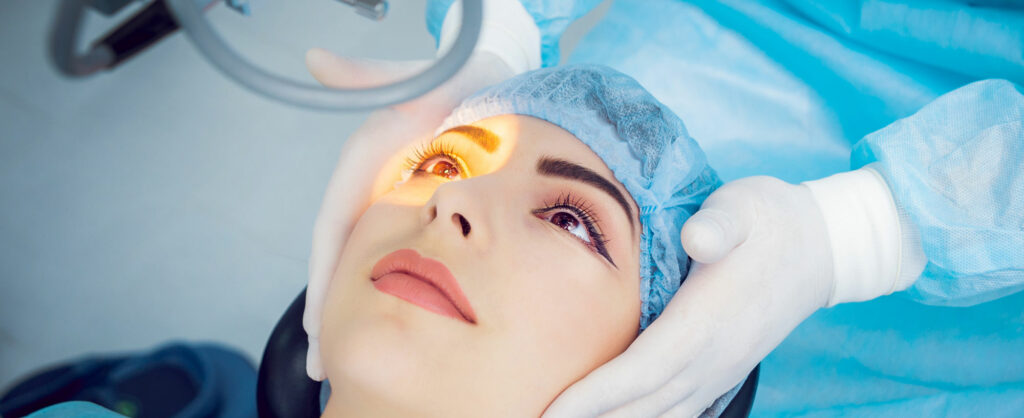
According to the National Eye Institute, you have more than a 50% chance that you’ll either have a cataract or have already undergone cataract surgery by the time you celebrate your 80th birthday. Cataracts are an age-related condition that causes a clouding of the lens in your eye, cataracts require surgery if you want to see clearly again.
At Malik Eye Care our highly regarded, award-winning ophthalmologist Dr. Sajid Malik routinely performs state-of-the-art cataract surgery to restore vision for men and women in the New York metro area. If cataracts have clouded your vision or that of a loved one, cataract surgery can help you or them see clearly again and resume your loved activities. Here’s what to expect before, during, and after your surgery.
Before Cataract Surgery
Before cataract surgery, your vision with cataracts typically becomes cloudy, and colors appear less vibrant. If not treated, cataracts may continue to increase in size, leading to vision loss and eventually blindness. Since cataracts cloud the lens inside your eye, wearing glasses no longer helps you see clearly.
Losing your vision can be a frustrating or even frightening experience. However, with today’s advanced laser technology and the expertise of our skilled ophthalmologist, removing cataracts from your eye and replacing your lens with a new, clear one, is a relatively simple and effective in-office procedure.
If you have any of the following vision problems you may be suited for cataract surgery:
Clouded or blurred vision
Sensitivity to light
Difficulty reading or watching TV
Dim, dingy appearance of colors
To prepare, we’ll carefully examine your eyes, discuss your overall health, and evaluate the size and location of your cataracts. During cataract surgery, the new intraocular lens (IOL) replaces your natural lens so you can see clearly, often without the need for glasses.
Before undergoing cataract surgery, you may also need to stop taking certain medications, and begin using antibiotic eye drops to minimize your risk of infection from the surgery.
Multifocal IOLs are used to correct both nearsightedness and farsightedness with a single lens.
With a new IOL, most people see even better than before undergoing cataract surgery, since the implanted corrective lens often reduces or eliminates your need for glasses.
During Cataract Surgery
During surgery, we use a local anesthetic to numb your eye so you won’t feel anything during the procedure. You’ll be awake during surgery, but you won’t be able to see what’s happening in your eye. Dr. Malik performs cataract surgery using a state-of-the-art femtosecond laser for maximum effectiveness and patient comfort.
First, we create a tiny incision in your eye with the laser near the edge of your cornea, and then emulsify the cataract and your natural lens using ultrasound. We remove the emulsified material of your old lens through the tiny incision and install your new, clear intraocular lens. This part of the procedure takes about 15 minutes, but you’ll be in the office longer to prepare your eye for surgery and afterward for a brief recovery period.
After Cataract Curgery
Once your new IOL is in place, it becomes a permanent part of your eye and provides improved vision for the long term. You won’t be able to drive right away, so be sure to arrange for a friend or family member to take you home.
Your vision may be blurry at first as your eye adjusts to your new lens and heals from surgery. Colors may appear brighter immediately following surgery, since cataracts typically make colors look dim and dingy. You’ll return for a post-operation eye exam a day or two after cataract surgery so we can monitor your progress.
The first few days after surgery your eye may feel itchy or irritated, but that’s completely normal. You may need to wear a protective shield over your eye for a few days while you sleep. You’ll use eye drops that we prescribe, and you should be careful not to rub your eye or do any strenuous activities until you are cleared to do so.
It can take approximately a month to fully recover from cataract surgery, but you’ll notice a difference in your vision very soon after surgery, usually within a few days.
If you’ve been diagnosed with cataracts, or you’re having any of the symptoms, cataract surgery can make a huge difference in your ability to see the world clearly again. For many adults, it’s like a breath of fresh air to finally be able to view the world through a crisp, clear lens and enjoy the activities you’re used to without the need for glasses or contacts.
Find out if cataract surgery is right for you! Call one of our offices or request an appointment here to see the difference laser cataract surgery can do for you!

